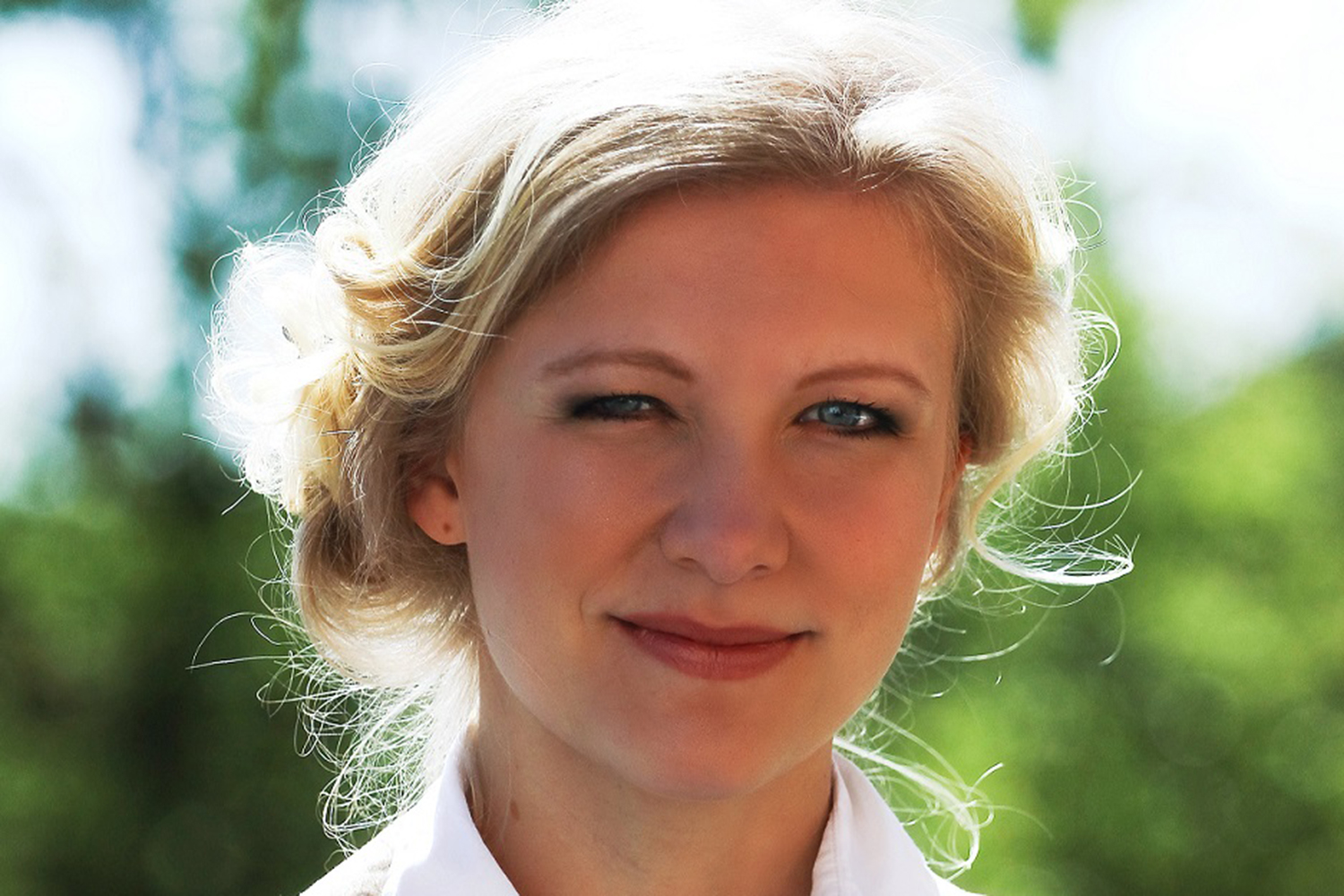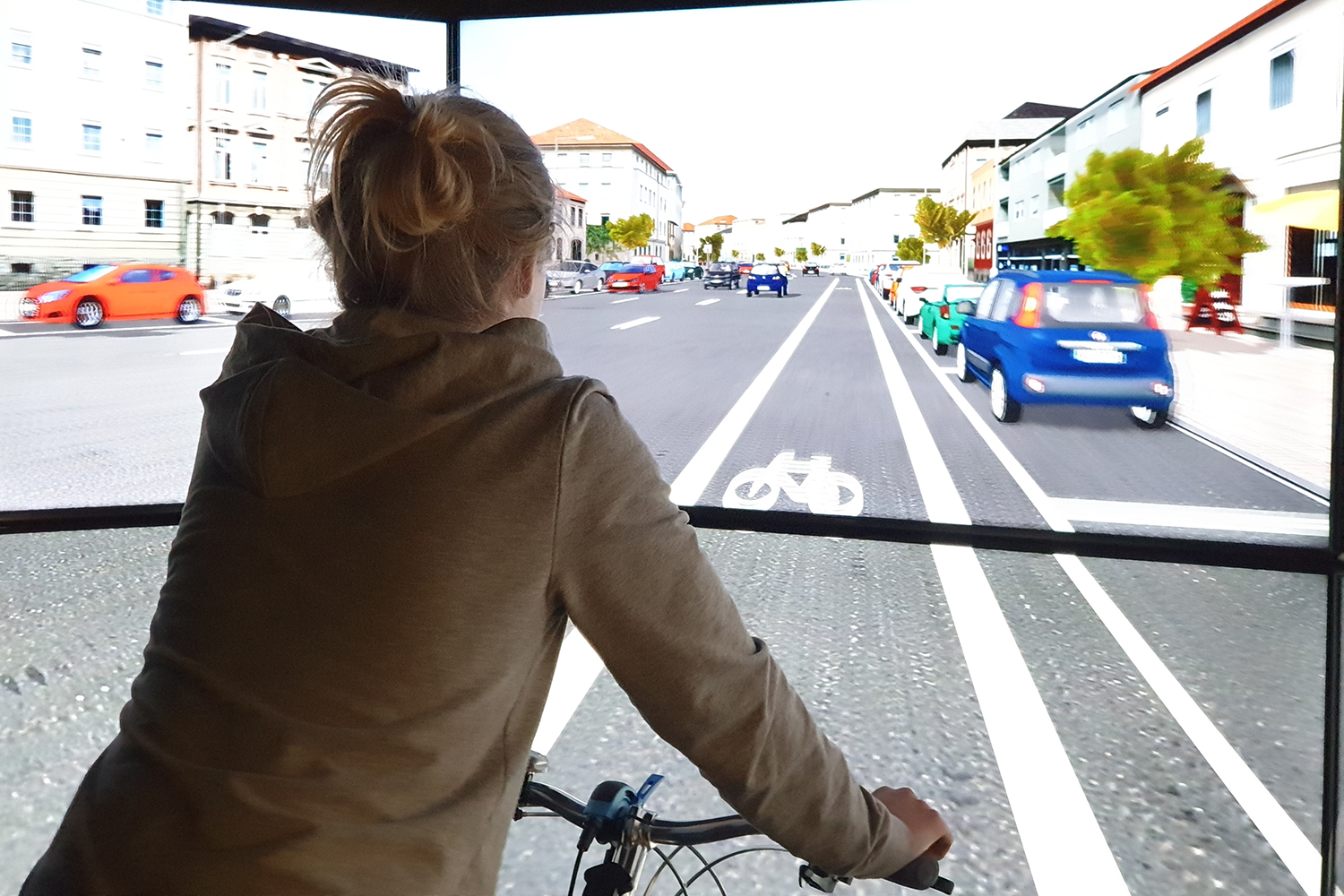The best route for cyclists A short portrait of Susanne Grüner from the Research Training Group 1931 "SocialCars"
From traffic planning to traffic psychology, but also to communication technology and geoinformatics, the Research Training Group 1931 “SocialCars – cooperative (de)centralized traffic management” in the Core Research Area “Future City” of Technische Universität Braunschweig builds a bridge between different disciplines. “Navigation of cyclists – new target groups of traffic management” is the research topic of PhD Susanne Grüner. We introduce the psychologist in a short portrait.
Who are you and what is your research topic?
My name is Susanne Grüner, I am a psychologist and work in the field of traffic psychology, where I study the behaviour of people in traffic. I am particularly interested in cyclists and how they can make their mobility safe, comfortable and efficient.
Which research question are you working on?
I investigate which characteristics distinguish an attractive cycling route and differentiate in particular between the (cyclist) personalities, the reason for the trip (e.g. commuting) and the urban planning conditions.
What inspires you about your research?
If we want more people to ride their bikes, we should first ensure that they are able to do so safely. And this is where we come in: By helping to understand what an optimal cycling infrastructure should look like and then putting this knowledge into practice, we can make a great deal of progress in the Verkehrswende.
Why is your topic relevant to the Future City?
The “Future City” focuses on the issues of increasing urbanisation, the city of good paths, and sustainable urban development and mobility – the research area of cyclists practically jumps out at you. In the Future City I would like to see as many cyclists as possible – therefore we should build them the infrastructure they need.
What is special about participating in the Research Training Group “Modelling the constitutive evolution of building materials and structures with respect to aging”?
SocialCars offers us researchers the opportunity to explore our topics in a focused and at the same time broad manner. Focused, because as doctoral candidates we get a lot of time and excellent resources to concentrate on our work. And broad, because this work is done in a team consisting of six professors and eleven other doctoral candidates from six different disciplines. Everyone knows what the other person is working on, why they do things the way they do them. At the same time, everyone has the opportunity to add their experience and expertise from their own discipline and improve the result. For example, us traffic psychologists work together with our colleagues in geoinformatics; after all, moving cyclists in urban areas interest both disciplines.


